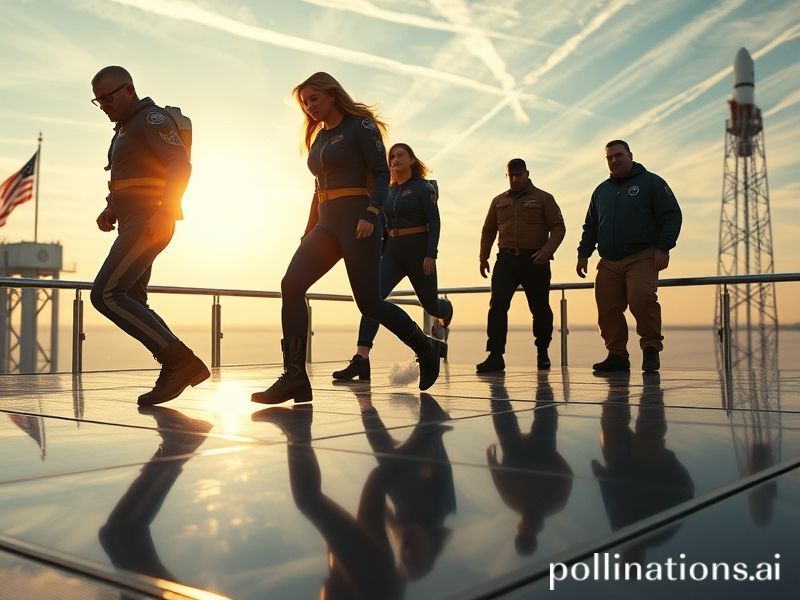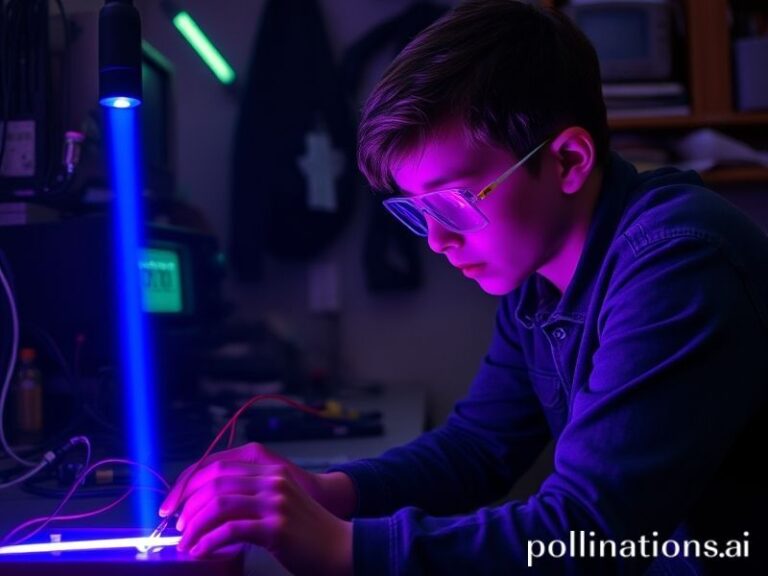Planet on Fire, Heroes in Polyester: Why the World Needs the Fantastic Four’s ‘First Steps’ Right Now
Fantastic Four: First Steps – A Cosmic Debut in the Age of Planetary Meltdown
By L. M. Valdez, Senior Correspondent, Dave’s Locker
Somewhere between the 14th cease-fire in Gaza and the 47th crypto exchange collapse of the week, Marvel Studios quietly released the first teaser for “Fantastic Four: First Steps.” To the naked eye it is merely a two-minute sizzle reel full of atomic-age optimism, retro-futurist chrome, and Pedro Pascal’s salt-and-pepper temples. Yet on the geopolitical Richter scale—yes, we now measure pop culture in Richter units—this trailer lands with the subtlety of a North Korean parade float.
The choice of 1960s aesthetics is not a nostalgic accident; it is strategic camouflage. While the actual 1960s gifted us napalm, the KGB, and the original Mercury astronauts, the MCU’s version offers an alternate timeline where the only fallout is literal cosmic radiation and the worst side-effect is a rock-hard epidermis. In other words, a safer hallucination than whatever TikTok just served your niece.
From an international perspective, the film’s retro setting is a diplomatic masterstroke. By staging the FF’s origin during the Space Race’s first blush, Marvel sidesteps today’s thornier questions: Which billionaire’s ego bought the rocket? Which regulatory body rubber-stamped the unshielded cosmic storm? Instead we get a quaint, multilateral NASA—think UNESCO with better tailoring—where nations still pretended to collaborate before the ISS became a glorified Airbnb for astro-tourists.
The casting itself is a mini-U.N. summit. A Chilean-American Mr. Fantastic, a Black British Invisible Woman, and a Latino Human Torch—only the Thing remains stubbornly orange, presumably because orange is the only skin tone still safe to caricature without triggering an intercontinental Twitter tribunal. The ensemble is Marvel’s sly nod to the planet’s demographic future, right before that future drowns in its own micro-plastics.
Meanwhile, the villain—Galactus, devourer of worlds—arrives not as a metaphor for late-stage capitalism (too obvious) but as a literal planet-sized landlord evicting entire civilizations for upscale cosmic redevelopment. Viewers in Jakarta, Lagos, and Miami will find the allegory deliciously on-the-nose as their own coastlines recede faster than Disney+ subscription growth in password-sharing households.
Industry analysts in Seoul and Mumbai have already crunched the numbers: “First Steps” is tracking to open bigger than Oppenheimer in every market except Japan—where, ironically, atomic metaphors remain a tougher sell. Chinese censors, ever the life of the party, are reportedly debating whether Galactus’s helmet counts as subliminal Falun Gong propaganda. Expect a slightly smaller planet-devourer in the Middle Kingdom cut, possibly rebranded as a hungry weather balloon.
The broader significance? A popcorn franchise is now our most reliable purveyor of shared myth. While the WTO argues over fish subsidies and COP summits devolve into carbon-accounting cosplay, the MCU offers the last functioning planetary narrative: good-looking people in spandex saving us from ourselves. It’s cheaper than therapy, less bloody than revolution, and the merchandising revenue props up at least three minor economies.
Still, one cannot ignore the gallows humor baked into the title itself. “First Steps” implies sequels—inevitable, like death, taxes, and another Fantastic Four reboot in 2034 when the current actors age out or unionize. By then Greenland may be a vineyard, the Arctic a trade route, and the actual moon a SpaceX parking lot. But somewhere on streaming, Reed Richards will still be stretching his limbs and our credulity, promising that science, family, and a well-timed cosmic ray can fix anything.
Cue the orchestral swell, fade to black, and remember: if you can’t beat the heat-death of the universe, you might as well watch it in IMAX.







